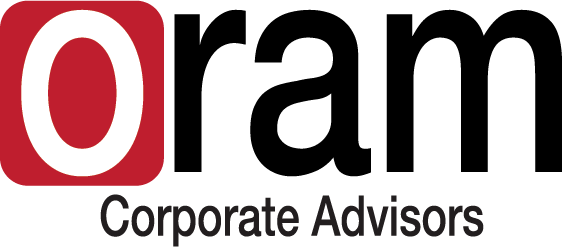How to squeeze the most out of your IT and save your business money
With the New Year in full swing you’re probably preparing to implement your updated information technology (IT) plan. As a business owner or leader, you probably have many questions such as, “How much should my business budget?” You may also be wondering if you’re making the most of the IT you already have in place. In this blog, we break down what every business should be budgeting at the very least as well steps for ensuring your business has the technology it needs and that your network is as secure as possible.
Cloud Computing
If your business has not yet migrated to the cloud for your email and other services, now is the time to do so. There are several reasons it is best for businesses to move to the cloud. From saving money to better data security, cloud computing offers a ton of benefits to modern businesses.
To begin, establishing and maintaining your own data storage is expensive. Not only do you need to purchase the right hardware and software, but you have to hire people to install it and set it up. Cloud computing allows you to pay for just the services you use and can reduce your IT costs. It is so affordable that is was estimated in research by McAfee that nearly one-third of worldwide enterprises would be using software-as-a-service (SaaS) by the end of 2018. Cloud providers typically charge based on the features you choose, storage used, and number of users. Most also charge for time and memory space. This means you get to select the package that best suits your IT budget.
Cloud computing also allows you both flexibility and scalability. Cloud computing lets your employees work from anywhere they have internet access through virtualization. Giving employees the option to work remotely means you can cut the number of workspaces at the office further reducing your costs. In addition, scaling Cloud computing services is a cinch. You don’t have to spend a ton of money on new servers, storage, and licenses as your business grows. With the cloud, you just sign up for additional storage space or features as your business needs them.
If you store your own data, a breach or disaster such as a fire could devastate your business’s valuable information. With the cloud, your data will always be available as long as users have internet access. Many businesses use the cloud specifically for backup and disaster recovery for this very reason.
Data security is also a top priority in this day and age of hacks, breaches, and ransomware. Email is the lifeblood of most businesses to ensuring it is secure should be a top priority. Storing data and using email on the cloud is often more secure than storing it or hosting on physical servers and data centers in your office. Laptops and desktops can be stolen as can other hardware. Data on the cloud can be deleted remotely or moved to a different account and hackers face a greater challenge in breaching cloud platforms so your data is simply more secure. As a matter of fact, 85 percent of enterprises keep sensitive data in the cloud according to Vormetric.
Finally, cloud computing is one of the most effective ways to promote collaboration and it gives you a wide variety of service options to choose from. Your employees will be able to easily share data, collaborate on projects, and provide updates in real time from the field. Time wasted on repetitive tasks such as data entry are no longer an issue and you get to choose the services your business really needs whether it is abundant storage or software from a wide range of providers.
Leveraging Your Existing IT
Hardware and software can be hugely expensive investments for many businesses. Your business needs to get the most out of every bit of IT it has invested in. For example, you may already be using Office 365 for email but is your business using it for file sharing or collaboration between teams? A network assessment and IT audit can tell you where you have room for improvement, opportunities for growth, and options for cost savings.
A study by Bank of America in 2017 revealed small business owners found the greatest barrier to achieving a balance between work and their personal life involved administrative tasks. Perhaps you have software that can help you automate administrative tasks to help your business free up time. For example, Intuit’s QuickBooks Self-Employed software has an expense management system built right into it. An independent IT auditor can show you how to best use what you already have to meet your organization’s needs without spending more money unnecessarily.
Hardware Replacement
Most businesses cannot afford to replace their desktops and laptops all at once. This is especially true when the average lifespan of a desktop today is between three and five years according to a piece by Chron, an online news source.
“Of course, this number is just a generalization and a number of factors play into lifespan, ranging from the computer’s quality, care, and room for upgrades,” according to the blog, “What is the Life Span of the Average PC?” “For small business owners, every new computer is an expense and an investment, one whose worth over time largely depends on how you use it and care for it.”
Laptops are also a typical expense for most businesses. According to a blog by TechGuided, the lifespan of a laptop will depend on the quality of the product you purchase, how often it is used, and how it is maintained. “A mid-range laptop should probably last around four to five years, though, give or take a year or two depending on how you use it,” advises the piece.
To make such updating of your IT more affordable, we recommend making replacements in quarterly cycles rather than all at once. Your IT personnel or your IT auditor can make recommendations as to which hardware needs to be replaced immediately, which can hold off for a few months, and which pieces still have a good life ahead of them. Based on these recommendations, you can schedule a plan for cycling out old hardware each quarter on a regular basis. This serves to level out your IT spending rather than investing a ton of money all at once.
According to an article by Business.org, businesses should “expect to pay between $400 for a basic model with limited storage space to $3,500 for a top of the line desktop with a large hard drive. Desktops also range in price based on operating system as well. For example, models that run Windows may be less expensive than Apple models. Apple desktops vary in cost from $1,500-$3,500, depending on which features you need.”
The same piece also stated that laptops “range from $300 for the most basic models to $3,000 for high-speed models with large storage capacity. Similar to desktops, laptops also vary in cost depending on which operating system you prefer. Apple laptops tend to fall towards the middle of the price scale, ranging in cost from $1,000 to $2,500. Laptops that run Windows have a wider price range, and cost depends mostly on features and brand.”
The Latest Software
In addition to hardware, businesses will also need to consider the software they are using. When you purchase software, it is licensed to your business and may have an end date to your user agreement. Additionally, software changes over time and there may be upgrades that could benefit your company or even new software that is better than what you have.
This is where the IT audit can once again assist your business with saving money. Your IT auditor can evaluate your existing needs versus the software you have in place. They can determine if you have the latest software or if the software you have simply needs to be patched or updated. A real IT expert can educate you about software to help you achieve your business goals while saving you money. Based on their recommendations, you can choose to either use what you already have or purchase better software to save your business money over the long term.
Email Security
As we mentioned before, email is as critical to business continuity as breathing is to life. That means you need to have quality security for your email. Software such as Microsoft Office 365 and other programs can scan for threats, identify phishing attempts, and filter spam. Programs such as Mimecast offer many of the same advantages and can also aid employees when it comes to identifying websites as safe or unsafe to visit based on URL reputation. Anti-virus, anti-spam, and firewall software are also good to include in your IT plan.
The cost of software will vary by brand and product. For example, a one-year subscription to Office 365 Unlimited Professional is just $99.00 online. That cost covers up to five desktops, five tablets, and five mobile devices such as smartphones. There are also monthly subscriptions to Office 365 Business for as little as $8.25 a month. What you spend will ultimately depend on what software you purchase or subscribe to, how many devices you need to cover, and for what length of time.
Technology Awareness Program
All of the hardware and software in the world won’t protect your business if your employees are not technology savvy. Any IT expert will tell you that regularly-scheduled, ongoing employee education is the cornerstone of securing your business data. This is something that every business should budget for because it’s your employees that can make or break your business.
The cost of security awareness and end-user training will, again, vary from business to business. This is because most companies that handle Technology Awareness Training programs, such as Oram Corporate Advisors, base their rate on how many people are being trained, how in depth the training will be, and how frequently you host trainings. Ideally though, businesses should train every new employee as part of their onboarding process with all-staff training every six months to keep employees updated on the latest threats and how to avoid or combat them. This investment in training will pay off in dividends as each employee becomes more aware of the threats they face and their role in protecting your business.
At the end of the day, how much your business should budget for technology this year will depend on a variety of factors from how you store your data to what hardware and software you have as well as your business goals. If you would like more information about IT asset management, network assessments and IT auditing, or other IT support services, please contact Oram at (617) 933-5060 or visit us online. We can even schedule a free technology assessment to get your business started off on the right foot in 2019.


